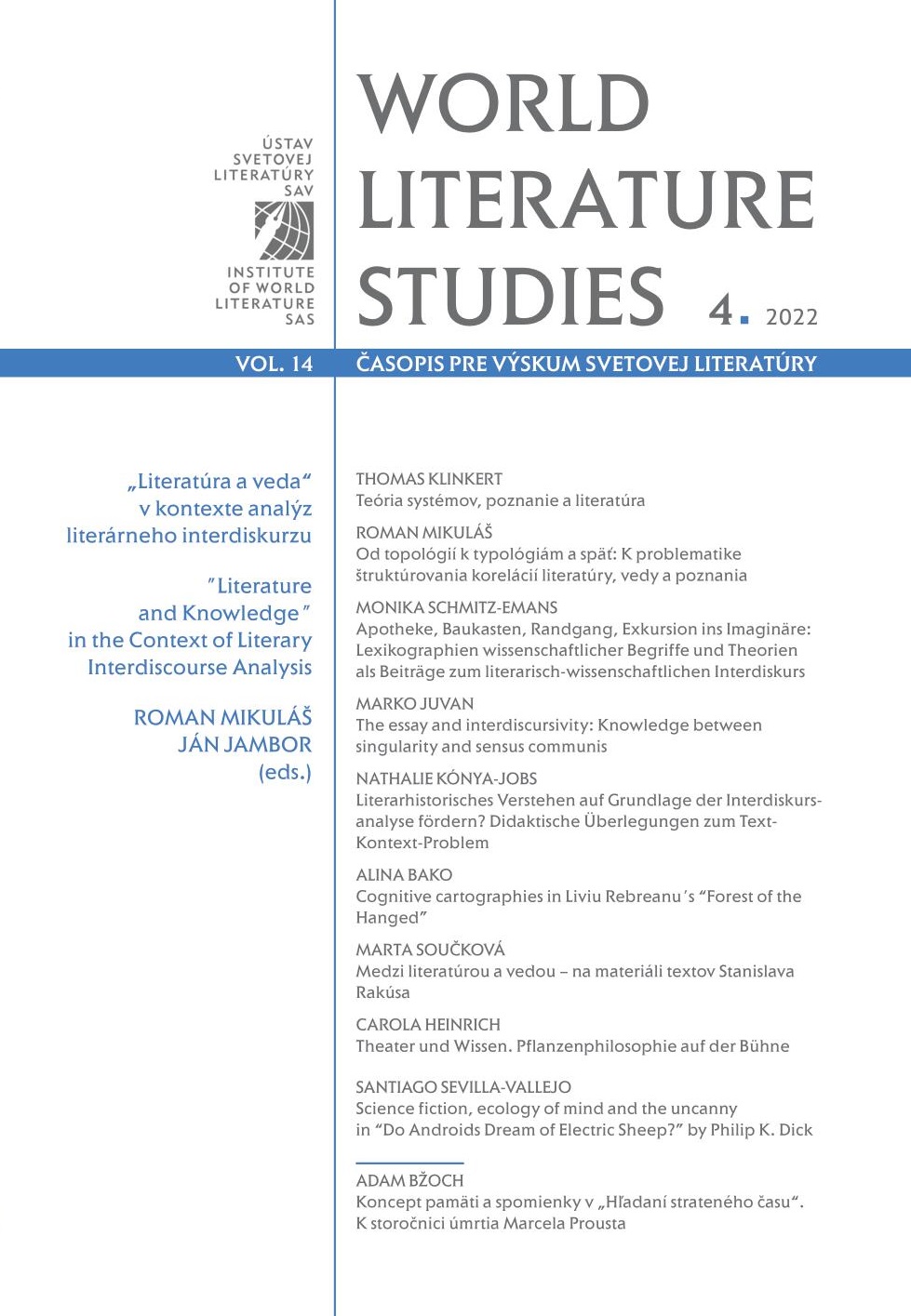Teória systémov, poznanie a literatúra
Systems theory, knowledge and literature
Author(s): Thomas KlinkertContributor(s): Roman Mikuláš (Translator)
Subject(s): Language and Literature Studies, Theory of Literature
Published by: Ústav svetovej literatúry, Slovenská akadémia vied
Keywords: Literature and knowledge; Systems theory; Niklas Luhmann; Symbolically generalized communication medium; Truth; Fictionality;
Summary/Abstract: This article suggests that the relationship between literature and knowledge can be described more precisely through elements of Niklas Luhmann’s systems theory, which is presented with a focus on its relevant concepts (autopoiesis, functional differentiation, second-order observation, symbolically generalized communication medium, etc.) For Luhmann, truth is not the expression of an adaequatio rei, but a symbolically generalized communication medium that participates in the autopoiesis of communication. As the article argues, fictionality can also be regarded as a symbolically generalized communication medium, and the as-if character of fictional discourse enables the inclusion of knowledge elements, although they are textually indistinguishable as such from non-knowledge elements. This is interpreted as an expression of the “paradoxical foundation of all knowledge” described by Luhmann. Paradoxically, literary fiction can make contributions to the production of knowledge, as will be briefly demonstrated in the conclusion with three examples (Sigmund Freud, Luigi Pirandello, and Yannick Haenel).
Journal: World Literature Studies
- Issue Year: 14/2022
- Issue No: 4
- Page Range: 3-13
- Page Count: 11
- Language: Slovak

